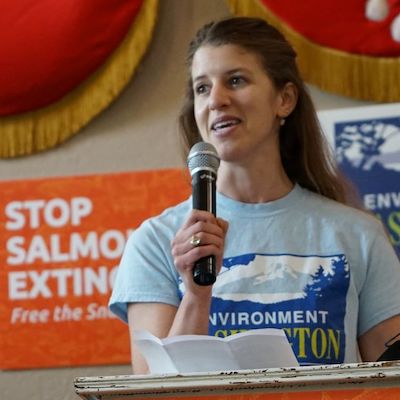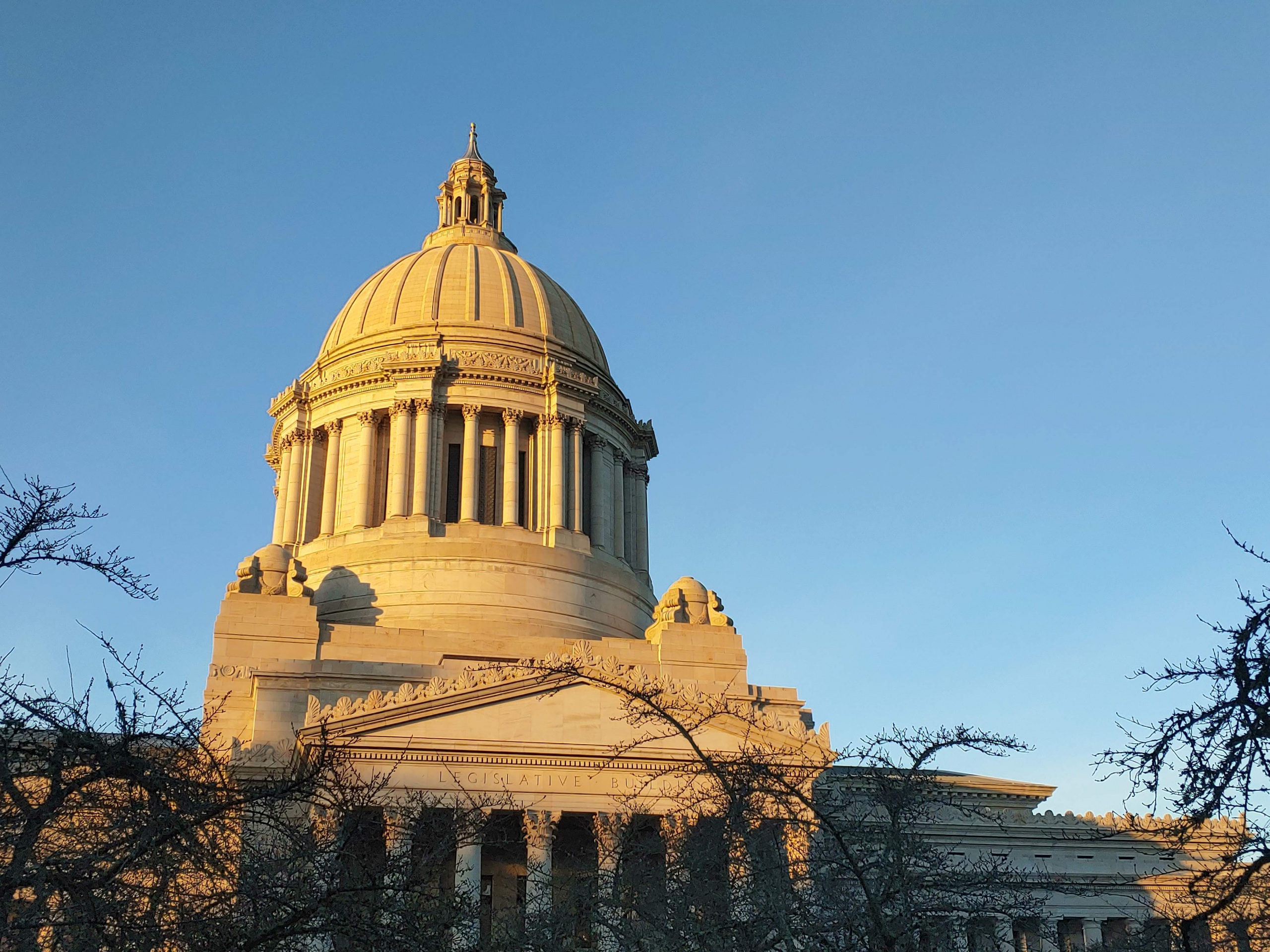
2022 Legislative Recap: Some progress, some missed opportunities
Every year, guided by our program agenda and with the support of our thousands of members across the state, Environment Washington advocates in Olympia to advance state level legislation that would create a cleaner, greener future for Washington. The 2022 legislative session ended last week, so we wanted to highlight some of the progress that was made this year, and some of the missed opportunities.

Every year, guided by our program agenda and with the support of our thousands of members across the state, Environment Washington advocates in Olympia to advance state level legislation that would create a cleaner, greener future for Washington. The 2022 legislative session ended last week, so we wanted to highlight some of the progress that was made this year, and some of the missed opportunities.
Wins for the Environment
Conserving and Restoring Kelp Forests and Eelgrass Meadows (SB 5619)
SB 5619 sets a target to conserve and restore at least 10,000 acres of kelp forests and eelgrass meadows by 2040. Kelp forests and eelgrass meadows are geographically and ecologically diverse “blue carbon ecosystems.” These areas can sequester up to four times as much carbon by area as land forests! They also act as “carbon sinks” as seagrass meadows store 11 percent of the organic carbon buried in the oceans. Protecting 10,000 acres of kelp forests and eelgrass meadows is a critical step we can take to protect marine life and ecosystems from climate change and other threats. We are excited to see this bill land on Governor Inslee’s desk.
Investments in Vehicle Electrification and Multi-modal Transportation (SB 5974)
Transportation is the number one source of global warming pollution in Washington. This legislative session, our elected officials made significant investments in vehicle electrification and making communities more walkable and bikeable, laying a roadmap to a zero carbon future. In addition to allocating $9 billion for carbon reducing investments such as hybrid-electric ferries, zero emission buses, electric vehicle infrastructure and projects to improve safety for bicyclists and pedestrians, Washington state set the most aggressive clean cars target in the nation by establishing a goal that all vehicles sold in Washington are electric by 2030. We applaud this progress and look forward to further action on a clean transportation future.
Reducing Greenhouse Gas Emissions from Buildings (SB 5722)
Buildings are constructed to last decades, if not longer, and many buildings around the state are using much more energy that they need to. SB 5722 will require smaller commercial and multifamily buildings (larger than 20,000 square feet) to meet energy use targets with efficiency improvements over time. This legislation will mean that more buildings in Washington will be on a path to become more efficient and use less energy over the course of their lifetime, thus reducing climate emissions and improving health outcomes for Washingtonians.
Missed opportunities
The Renew Act (SB 5697)
The Renew Act would have made some much needed improvements to Washington’s recycling system through establishing a producer responsibility system, in which producers of packaging and paper products would have been made responsible for at least some of the costs associated with the end of life of their products.. Additionally, this policy would have incentivized companies to make more sustainable packaging choices. For decades, Washingtonians have had to pay the costs associated with our growing waste crisis: The cost of waste disposal; the public health costs of pollution from plastic trash in our incinerators and landfills; and the incalculable cost that plastics are inflicting on our environment.
Environment Washington advocates testified in support of the Renew Act, generated hundreds of calls and emails into legislators in support of this policy, and worked to raise the visibility of our plastic problem and this solution through legislator education and media outreach. While the Renew Act passed through its first committee, it unfortunately failed to advance beyond the Senate Ways and Means committee after facing pushback from industry players. However, we know that the public is fed up with our plastic waste problem and ineffective recycling system, and will work to bring this legislation back in the 2023 state legislative session.
Lorraine Loomis Act for Salmon Recovery (HB 1838)
The Lorraine Loomis Act for Salmon Recovery could have brought major changes in habitat protection and restoration to save salmon populations here in Washington. Across the state, salmon are on the brink of extinction. Some Puget Sound salmon species have declined by 90% compared to historical populations. Governor Inslee worked with many tribes across the Pacific Northwest to propose HB 1838 that would have centered salmon recovery in future land use, with important financial assistance, monitoring, and accountability to address the urgency of the salmon crisis. This Act could have been a major step toward state level salmon restoration and Southern Resident orca recovery. These migratory whales call the Salish Sea home for part of the year and have previously had an abundance of salmon to eat.
While working alongside partner organizations like Save Our Salmon Coalition and Tribes in the Pacific Northwest, we mobilized thousands of Washingtonians to comment and advocate for salmon restoration this past session.
Unfortunately, The Lorraine Loomis Act didn’t make it past its origin committee after receiving push back from landowners. But with hundreds of Washingtonians calling for salmon recovery, lawmakers are now seeking to bring millions of dollars from the budget to investing in voluntary salmon recovery programs.
Right to Repair (HB 1810)
HB 1810would have promoted the fair servicing and repair of digital electronic products in a safe, secure, reliable, and sustainable manner. Electronics are frequently sent to landfills instead of being repaired as manufacturers restrict repair technology or information, making this bill a cornerstone of our zero waste agenda.
Washington was being watched as a possible first state to pass Right to Repair legislation, with considerable support from legislators, small businesses, and consumers. The Right to Repair coalition in Washington negotiated with Microsoft so that the company was neutral on the bill, instead of opposed as they were last year. The bill sailed through the first three committees, but unfortunately did not get a chance for a floor vote before the procedural deadline and did not move forward. We are encouraged by this progress and hope that equivalent efforts in other states are successful. We’ll push again next year for Washingtonian’s Right to Repair.
Authors
Pam Clough
Advocate, Environment Washington
As an advocate with Environment Washington, Pam develops and runs campaigns to protect Washington's air, water, and special places. She has worked on issues ranging from clean energy climate solutions, preventing plastic pollution, defending clean water, and protecting our special natural spaces. Pam lives in Steilacoom, Washington, where she enjoys kayaking on the Puget Sound, gardening and hiking in the surrounding mountains.
